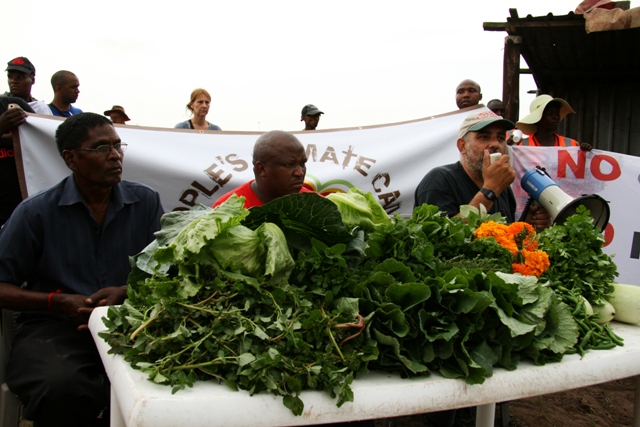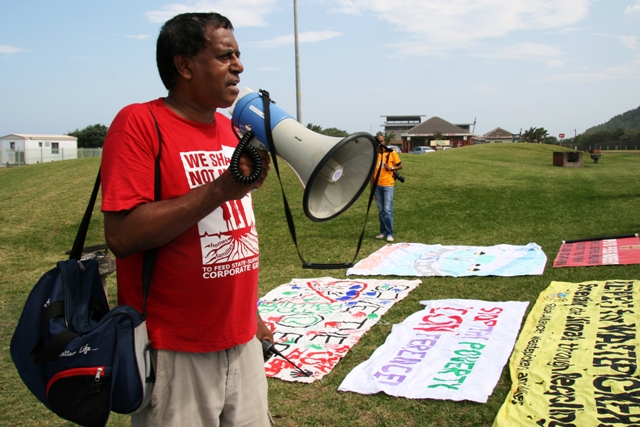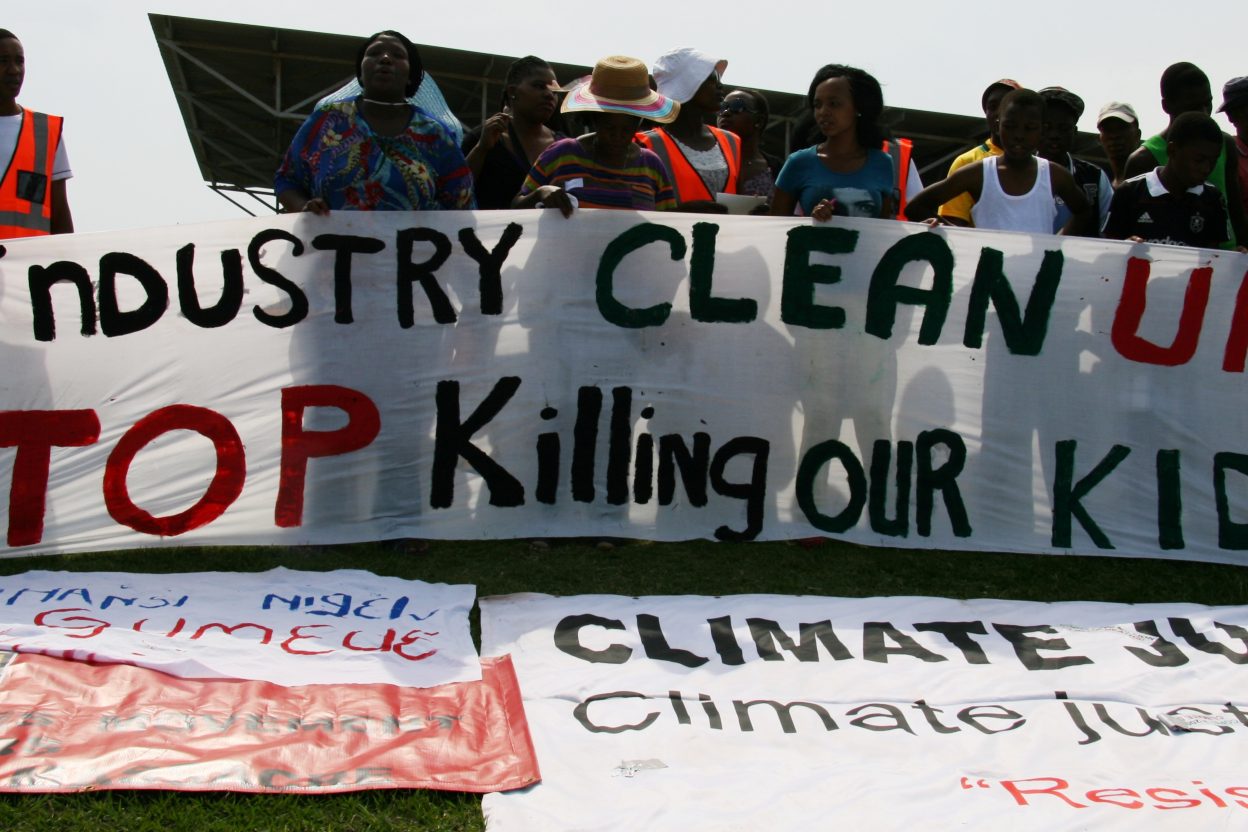During the international climate talks in Warsaw we connected via a live link-up with the People’s climate camp in Durban, South Africa. From the alternative convergence space in Warsaw social and climate justice movements expressed solidarity with farmers in Durban, who are facing serious threats from land-grabbing. Here is a reflection on the camp written by Megan Lewis, media and communications officer at groundWork, Friends of the Earth South Africa.
Something happened in Warsaw, Poland in November, but something even bigger took place at an eco-park in the Bluff, one of the many communities that make up the south Durban basin in the province of KwaZulu Natal. A People’s Climate Camp was held parallel to the UN climate negotiations in Poland. Like many justice-based organisations, movements and individuals globally, the international talk-shop let us and the climate down years ago. Our democratic, people’s based climate camp was undoubtedly one out of hundreds of actions and events that took place around the world, with people feeling this sense of being let down but of continuing the for climate justice.
The location of our camp was not random. South Durban is a hub of polluting industry and its related infrastructure, as well as a place of rich historical and cultural heritage amongst the communities that have lived there for decades. The Durban harbour, the largest port on the African continent, is also found here and if the City of Durban and Transnet (South Africa’s largest rail, port and pipeline company) has its way, it and industry will be the only parts of south Durban left. A multi-billion rand port expansion, including a dig-out port, back of port and major link road, is proposed for Durban, resulting in overwhelming the area with more trucks, logistics parks and the expansion of the existing petrochemicals industry. What this will mean is that people will potentially either be forced to move or else slowly squeezed out of their communities, as the place would become uninhabitable to anything other than government and private sector greed.

The People’s Climate Camp was held here in solidarity with 16 local farmers and 100 farm workers who will literally have the land beneath their feet dug out beneath them if the dig-out port goes ahead to make way for the back of port. Their produce of vegetables, fruit and flowers is sold cheaply at local markets and chain stores, supplying food to those who would otherwise not be able to afford large supermarket prices. Our community based partner organisations sent 70 people collectively coming from all over the country to stand with the farmers and with south Durban in general: Vaal and Highveld – areas that are designated air priority areas due to heavy pollution from coal-fired power stations and industry; waste pickers or recyclers from the South African Waste Pickers’ Association (SAWPA) from the above-mentioned areas and KZN; and various other groups from KZN joined us.
The camp was not an action that sprung up out of spontaneity; it was organised through two workshops in two main areas for those who would be camping. The aim of the workshops were firstly, to fully understand the politics of energy, climate and environment and how this linked with the south Durban port struggle and secondly, to be able to live in a more sustainable way at the camp, but also take ideas home in order to mitigate climate change at an individual and organizational way. It was an idea that stemmed from dialogues that took place the previous year with people from these areas, around issues of energy sovereignty, which was consequently published in the groundWork Report called Talking Energy (part one of a three part series dealing with the issue of people’s control over their own energy system). From the workshops and camp, the second part of the series will be published as the next groundWork Report.
Whilst we had planned an ‘occupy’ on the farmer’s land, Durban’s summer is a notoriously wet and rainy one, and both the shelters and smiles on our faces would not have lasted long! Instead, on the first day, we held a protest to and a press conference on the farmer’s land, surrounded by fields of leafy green vegetables. Upon our return to the eco-park we began building our shelters and cooking food on ‘rocket stoves’ that emit less pollution than coal braziers that are often used in informal settlements.

After surviving our first night of camping, we held an assembly to create a democratically organised space where people could debate and define common positions on climate and energy justice on their own terms. We stood in solidarity with the people of Durban whose resources are being taken by transnational corporations, realising that struggles across the country have differences and similarities that can make for interesting discussions and potentially unifying national actions. We were joined by between 30 to 50 members from local Durban NGOs and movements, who came in for the day to lend their ears and voices.
On the last day, the assembly process had culminated in a declaration which was signed by almost 30 community organisations, people’s movements, faith-based organisations, non-governmental organisations and other civil society formations. It made a strong statement against false and destructive developments in the form of coal and coal-fired energy generation, unconventional energy sources such as fracking, false solutions to climate change like carbon capture and storage, and false solutions to food security. The declaration made a strong statement calling for a stop to burning fossil fuels, reducing greenhouse gas and other polluting gas and particulate emissions, protecting our rivers and waterways, food and energy sovereignty where people have democratic control over their production and consumption of their food and energy without the interference of those seeking large profits.

